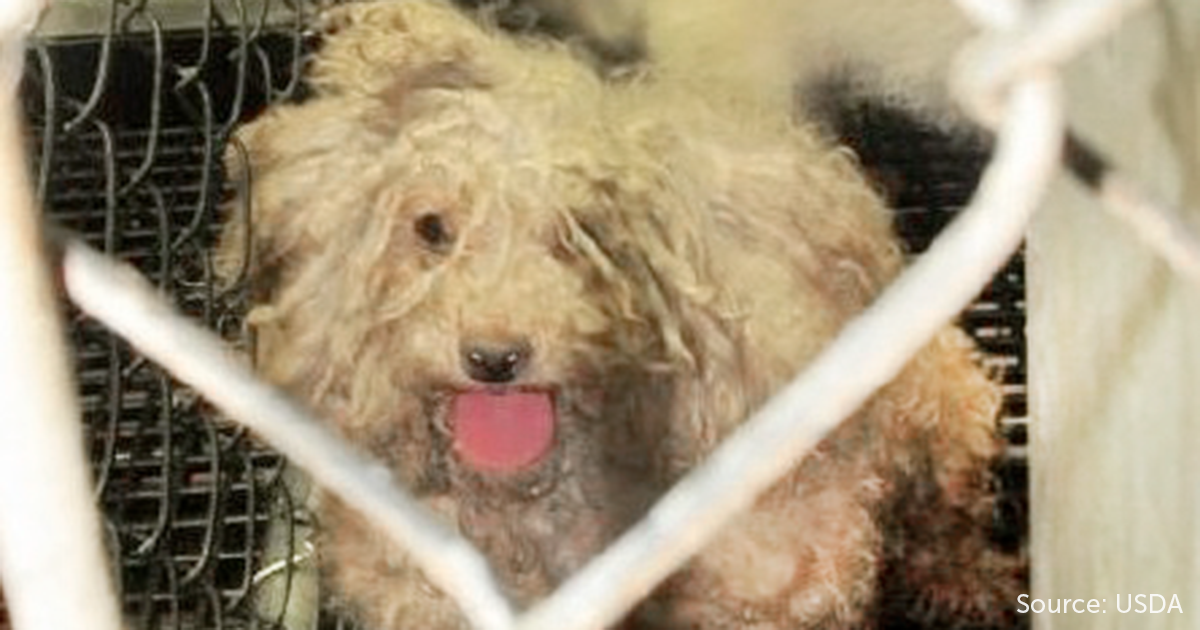
USDA Fails to Fix Problematic Rubber-Stamping Policy for Animal Businesses

- The USDA is tasked with licensing certain animal businesses and enforcing federal animal welfare care standards.
- The agency typically auto-renews puppy mill licenses despite heinous, illegal animal abuses that go uncorrected and unenforced year after year. This practice of “rubber-stamping” licenses has been criticized for decades by lawmakers, animal advocates and the USDA’s own Office of Inspector General.
- The USDA finalized a new rule supposedly intended to address this flaw, yet the rule is absent of any meaningful improvements.
This week, the U.S. Department of Agriculture (USDA) finalized a new rule to address its harmful, longstanding practice of “rubber-stamping” licenses for certain animal businesses—a practice which allows facilities like puppy mills and roadside zoos that violate the law to stay in business year after year. Having reviewed the rule, we feel it fails to enact meaningful changes that will remedy the auto-renewal issue and stop bad breeders.
While it’s true that new applicants are required to show that they understand Animal Welfare Act (AWA) requirements and can meet required standards of care before being granted a USDA license, already-licensed facilities are not required to demonstrate AWA compliance when they apply to have their licenses renewed. In fact, even when a USDA inspector finds a violation—including animals in need of veterinary care, cages that are too small, or a lack of clean water or food—the agency most often chooses to take no action at all.
This practice of issuing automatic renewals has been criticized for decades by lawmakers, animal advocates and the USDA’s own Office of Inspector General. In 2017, following a string of lawsuits, the USDA agreed to revisit the regulations; the final rule released Wednesday was supposed to create a new process to end the current practice of rubber-stamping renewals. Unfortunately, it contains significant flaws:
- License renewal will be conditional upon demonstrating AWA compliance during an inspection period at the end of each three-year term (rather than a 12-month term).
- The USDA will provide three announced inspection opportunities to meet the end-of-term requirements.
- It appears that the agency will not deny a license application due to AWA violations or other “non-compliance” issues noted by agency inspectors outside of these announced inspections.
This process continues to undermine what is already a failed enforcement process. If the results of routine compliance inspections are irrelevant to the agency’s decision to renew a license and the agency fails to bring any enforcement actions for documented violations, it is not unclear what role inspections play and if they will be meaningful.
Additionally, in the event the agency does reject a license application, the facility that was denied has a right to a full hearing and—defying all reason—may continue to operate while it awaits its hearing. This will undoubtedly result in prolonged animal suffering and waste taxpayer resources, as the current system tends to take years to hear and rule on cases.
It remains to be seen how the agency will implement these changes and whether it will use this new rule to continue to keep bad breeders in business year after year. You can help make sure suffering animals are not overlooked: Sign our petition if you feel the USDA should step up and truly protect vulnerable animals.
